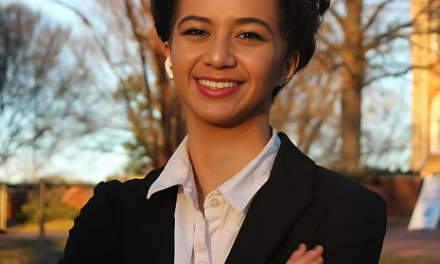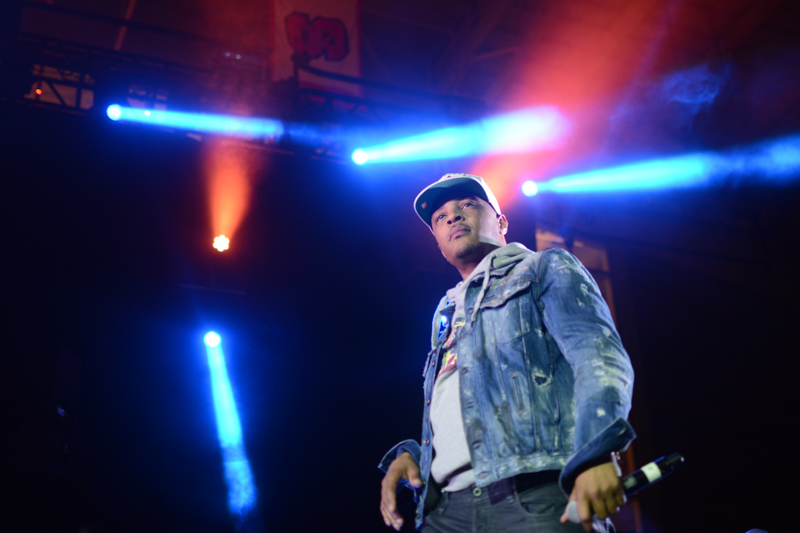After a year off, the African American Cultural Festival of Raleigh and Wake County returned to bring the community together. Last year, COVID-19 caused the annual festival to go virtual, but after moving to a new location and adding regulations to accommodate the pandemic, the festival was back for 2021.
The festivities began with Afrochella on Aug. 28 at Raleigh Union Station where a limited audience gathered outdoors to watch musical acts perform.
Events continued the following weekend of Sep. 4-5 where participants could enjoy family time at Moore Square Park or Chavis Park in the afternoon while they took in the warm summer of Raleigh. From 1-7 p.m, attendees could visit the Duke Energy Center for Performing Arts to get artwork, jewelry, clothes, soaps, oils and much more at the Vendor Village market. The vendors working the market were dreamers and leaders selling merchandise beholding powerful slogans like “I love my history” and “we don’t need their approval”. Artists looking to spread a message through the face of the subject of a painting or the tones of colors on the background of a landscape.
It was in this busy market full of inspiration, drums and dreams where the Nubian Message was able to meet and talk to local artist, art teacher, and entrepreneur Eric McCray, who was participating as a vendor selling his paintings.
Nubian Message: “How was your experience at the festival this year?”
Eric McRay: “This was my first time coming as a vendor. I usually come with my family, which has become a labor day tradition for us, but this year I wanted to participate as a vendor/exhibitor and it was a smashing success… and my children found it to be uplifting, encouraging, and inspiring experience”
NM: What does it bring to the family?
EM: “Well for me, my daughter started working with a vendor across from me from New York who was selling T-shirts. She did so well that the gentleman offered her a job at a new business he was starting! My son introduced himself to the other vendors and told them about my artwork and he ended up getting a job offer too. Keep in mind my children are only 17 and 15 but now we had people coming to the table complimenting [Eric and his wife] on how well we raised our children. I was really impacted by… how entrepreneurial, uplifting, spiritual, unifying, positive and enlightening the environment was. My children [grew] up in Raleigh which is a wonderfully diverse community. But I think the positivity and unity shown by the Black vendors… impacted them and may be contrary to some things they see in the media about our culture or attitudes. It really cemented a greater confidence in their community, culture and self identity.”
NM: What’s it mean to be an Black artist in NC?
EM: “I started in the mid to late 80’s where there were little opportunities. The only events where I was able to exhibit my art was something like Black history month. I tried to push through that to make my work available 12 months a year. There were lots of [lack] artists here that had trouble attracting a broad audience. Oftentimes people wanted to pigeonhole and demean the work of my peers and I as just for a specific crowd. I had to be a trailblazer in order to impact local communities. I’m thankful to say I did that.”
NM: What is Black art?
EM: “That’s tricky. For instance Martin Luther King’s statue in D.C. was made in China and the original version had to be sent back because he looked Asian Is that Black Art? Now how about if a Black artist paints a landscape with no cultural references? It’s a double- edged sword but to me any art created by African Americans is African American art.”
After a day of shopping, eating and entertainment participants could end both Saturday and Sunday evening with outdoor concerts at the Duke Energy Center For Performing Arts Plaza.
Music, art, fashion, food and much more. Whatever your interest is, the African American Cultural Festival of Raleigh and Wake County brought it all in order to bring a community together (in accordance with local safety guidelines of course).
For more on the festival visit
The African American Cultural Festival of Raleigh & Wake County (aacfestival.org)
For more on Eric McRay
Welcome – Mid-Century Abstraction, Jazz, Coastal, and More. | Artist Eric McRay of Raleigh, NC




